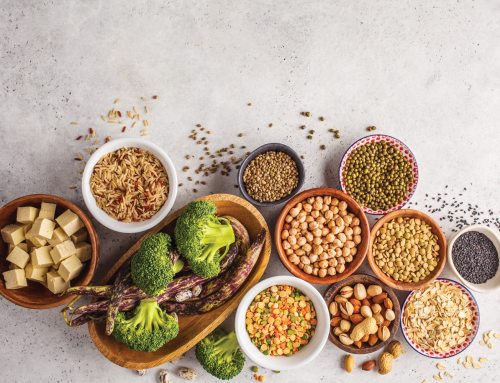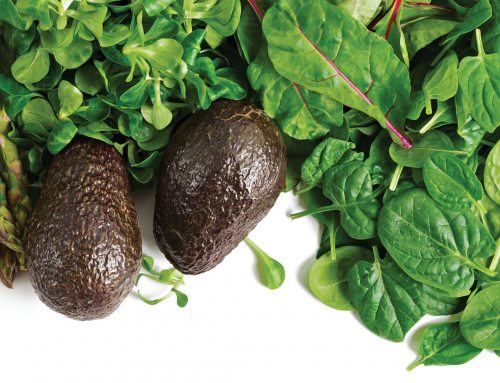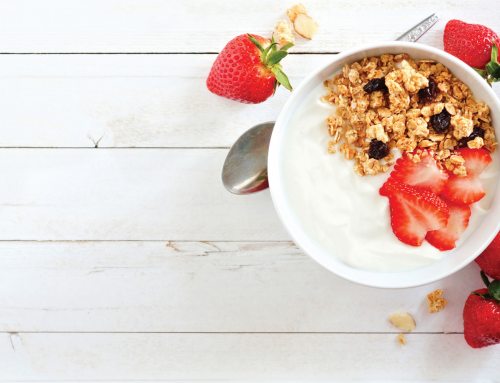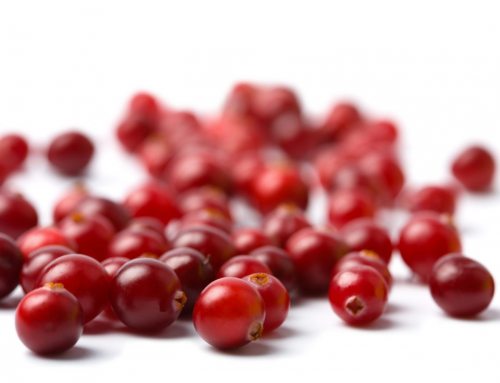It’s not an old wives tale, breakfast really is the most important meal of the day. A nutritious, well-balanced morning meal not only sustains your energy levels better than endless cups of coffee, but it also can help:
- Boost weight loss efforts. Research shows that breakfast eaters are more successful at losing weight and maintaining that weight loss compared to breakfast skippers.
- Sharpen your mind. People who consume a high-fiber breakfast stay more alert than those who start their day with a high-fat meal, according to research.
- Protect your cardiovascular system. A study revealed that people who consumed whole-grain cereals rather than refined cereals had a lower risk of heart disease.
- Strengthen your immune system. The right breakfast choices help you start your day with immune-boosting vitamins and minerals.
Following are some tips on finding a breakfast that’s healthy and enjoyable.
Choose only whole-grain breads or bagels.
You can tell it’s whole-grain by reading the ingredients list-the first ingredient should be a whole grain, such as whole wheat, bran, or oats. Get creative and healthier with your bagel topping choices by replacing cream cheese, butter, and/or jam with peanut butter (typically free of trans fats) and a sliced banana; sliced tomatoes and avocadoes; or hummus. If you can’t live without cream cheese on your bagel, choose whipped cream cheese, which contains fewer calories than solid cream cheese. Also, try low-fat or light versions, as well as dairy-free cream cheese substitutes.
Cut back on the heavy fats like cheese and cream.
Cutting back on heavy, fat-filled breakfasts will protect your body from harmful inflammatory processes that can lead to premature aging. You can lower the fat content of traditional egg breakfasts by replacing some of the whole eggs in your meal with egg whites instead. Or you can switch to low-fat egg substitute. Go easy on the cheese and breakfast sandwiches, which tend to be high in saturated fat and/or sodium. Instead, supplement your meal with fresh fruit.
Choose your cereal wisely.
Whether your cereal is hot or cold, you’ll always want to check the fiber, fat, and sugar content per serving. For example, many kinds of instant oatmeal tend to be heavily processed, leaving it lower in fiber than unprocessed, whole oats. Choose cereals with at least three grams of fiber per serving. Inspect breakfast bar labels the same way you would inspect cereal labels, noting fat, fiber, and sugar content. Many cereal, granola, and breakfast bars tend to skimp on fiber and instead bulk up on sugar. Your goal should be to get a total of at least 6 grams of fiber at breakfast. If your favorite cereal is low on fiber, add a few tablespoons of unprocessed wheat bran to it.
Another quick breakfast trick: always keep raisins on hand. Raisins can be tossed into cereals whenever your fresh fruit supplies are low, or they can be added to cereal in addition to fresh fruit for extra flavor.
If pancakes are your morning tradition…
Add several tablespoons of bran to the batter to boost the fiber content. Also, top your hotcakes with fresh fruit purees instead of syrup and butter. You can even add a dollop of low-fat whipped cream. A few other easy switches to make: replace the cream in your coffee with skim milk, choose pure fruit juice over soda or sweetened drinks, and switch from white toast to whole-grain toast. Your goal is to get a total of at least 6 grams of fiber at breakfast.
Skip the donut or pastry
Their high glycemic indexes mean your body digests them quickly and your energy levels could crash well before lunch as a result. If your cereal bar is low in fiber and high in sugar, you may need another option there, as well. Instead, grab a toasted whole-wheat English muffin topped with a whole-fruit spread. If your breakfast isn’t keeping you satisfied until lunch, you may need to emphasize more low-glycemic index (GI) foods, which can help keep you feeling full longer. Low-GI foods include whole-grain (and high-fiber) cereals such as bran, oatmeal, and muesli, and high-fiber fruits, such as berries and apples. Filling up on these satisfying foods at breakfast can help prevent over-snacking during the day, which helps reduce your overall daily calorie intake.
Take your breakfast with you!
No time for breakfast? If you’re pressed for time in the morning, stocking your fridge with portable, ready-to-eat portions-fruit and veggies in sandwich bags, hard-boiled eggs, and low-fat or non-fat yogurt cups-allows you to grab something quick and easy… and nutritious.






